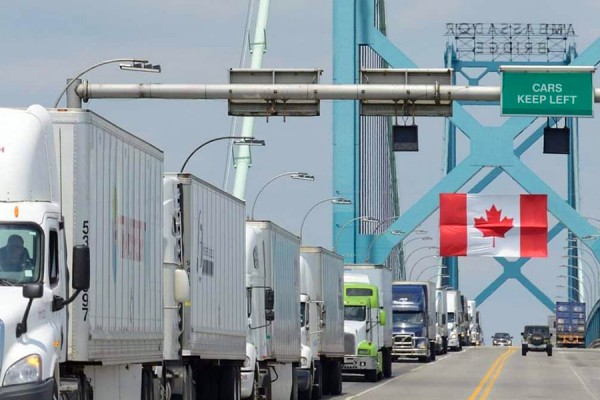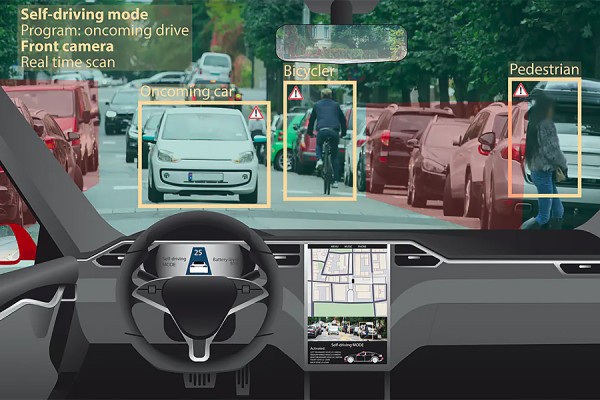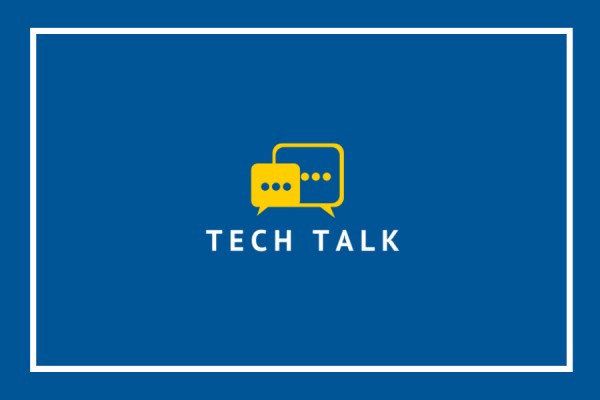 Researchers at the Cross-Border Institute have circulated a discussion paper to spur conversation on how to responsibly restore mobility across land borders during the ongoing pandemic.
Researchers at the Cross-Border Institute have circulated a discussion paper to spur conversation on how to responsibly restore mobility across land borders during the ongoing pandemic.
There are ways to safely ease border restrictions despite the pandemic to help businesses in Canada and the United States, a team of UWindsor researchers suggest in a newly published paper.
In a nine-page discussion paper sent to policy makers in Ottawa and business groups in North America, the Cross-Border institute has reviewed the ongoing effects of severely restricted cross-border activity. The researchers say they hope the paper spurs conversation on how to responsibly restore mobility across land borders.
“It’s time to find ways to live and prosper in a world where the threat of COVID-19 infection affects everything we do,” said Bill Anderson, a professor of political science and director of the Cross-Border Institute, a UWindsor research centre that studies the movement of people, goods, services, and funds across international borders.
“We welcome comment, debate, and even criticism of our ideas,” Dr. Anderson said. “We only insist that the process of finding a way to safely and responsibly restore cross-border mobility must begin.”
He pointed to a pilot program in Alberta at the Coutts land border crossing and Calgary International Airport as an example of how testing for COVID-19 can be used to cut down quarantine periods. These pilot programs show that this topic is of concern to the federal government.
In their paper, Anderson, Marta Leardi-Anderson, and Laurie Tannous don’t argue for throwing the border wide open, but rather to establish a system using available rapid tests to screen out potential border crossers who carry the virus. Testing does not have to be perfect, but it has to be good enough to ensure cross-border travel does not accelerate the spread of the virus, they argue.
“If there is no difference in the prevalence of the virus in the populations on either side of the order, there would be no reason to restrict border crossings,” Anderson said. “We need testing to be good enough to offset the differences in infection rates that currently exist in the U.S. and Canada.”
Anderson said the stream of trucks flowing over the Ambassador Bridge and other border crossings gives the false impression that commerce has been unaffected. But, he said, those truck shipments are based on contracts negotiated in the past, most likely in face-to-face meetings between manufacturers and suppliers.
With those meetings no longer allowed under COVID restrictions, the flow of goods may begin to dry up once existing contracts are fulfilled and building new business networks is interrupted, Anderson said.
Canadian mould makers and companies providing automation to the automotive industry have been especially vocal about the effect border restrictions are having on their bottom line, Anderson said. “They tell us they are losing millions of dollars worth of new contracts because they cannot visit manufacturers in the U.S. and they cannot bring in potential customers for site visits.”
Without vaccines and with infection rates skyrocketing, restricting border mobility was a prudent initial reaction, the researchers said. But testing options now available can help manage the risk.
Conducting tests at land border crossings is not practical, they say. A better option is for travellers to present evidence of recent negative tests before they are allowed to cross. This would require reciprocal agreements between Canada and the United States on which tests are acceptable, how recent a negative test must be, and how testing results can be conveyed securely to border officials.
Anderson said he and his team don’t purport to be scientists or medical specialists.
“We’re just people who know about cross-border business and cross-border logistics,” he said. “Scientists, doctors, and public health officials will have to make the final calls on acceptable risks, and they must have the option to reimpose restrictions when infection rates rise.”
—Sarah Sacheli


 Author Marty Gervais, resident writing professional in the Department of English and Creative Writing, will read from his latest publication,
Author Marty Gervais, resident writing professional in the Department of English and Creative Writing, will read from his latest publication, 



